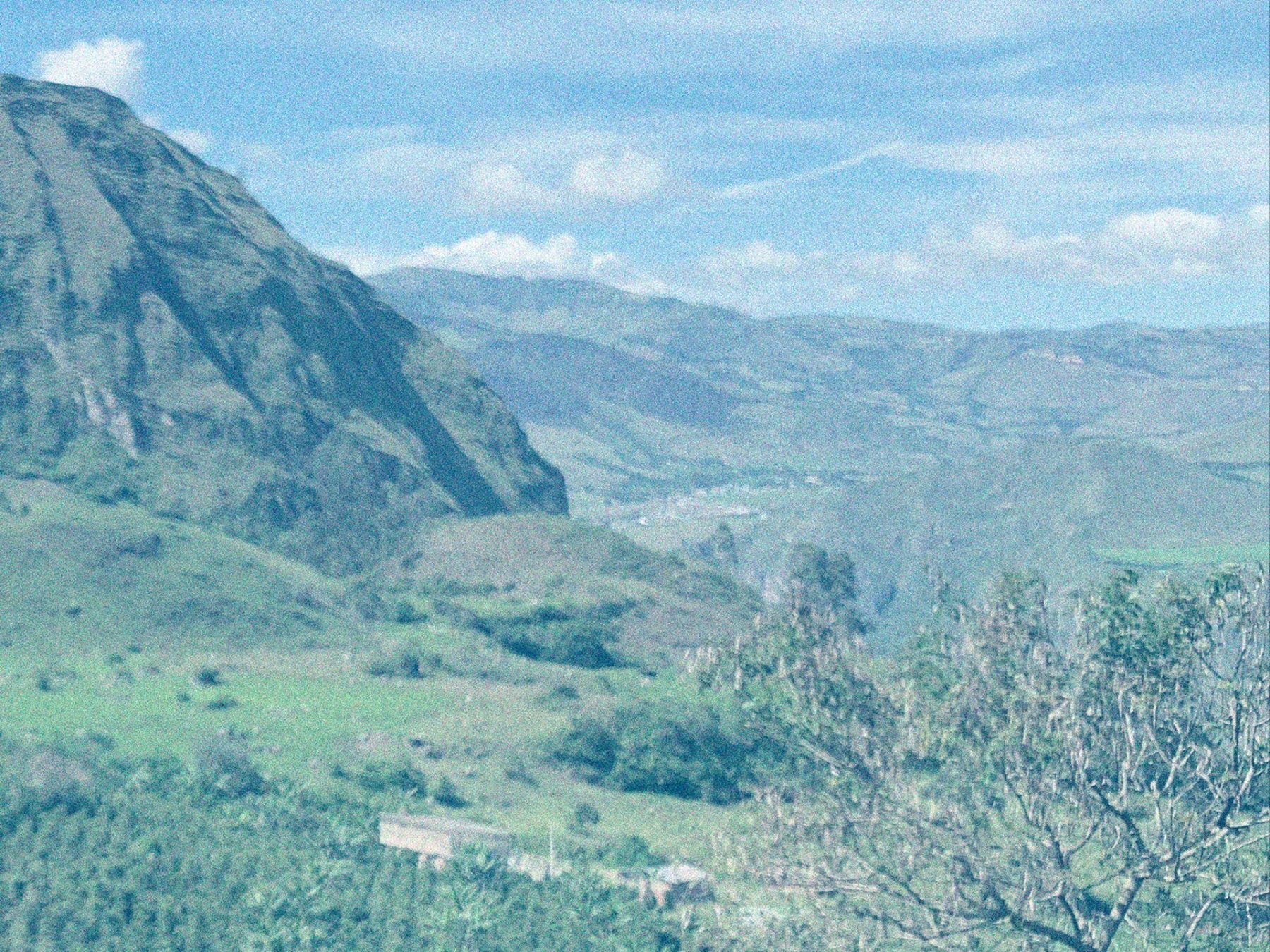What happens when you expertly grow and process Caturra beside a volcano and a river that feeds from the Pacific Ocean watershed? Jelly Donut!
Before starting Luna nearly three years ago, it was always a non-negotiable to buy coffee from Yacuanquer.
Why? The coffees are exceedingly delicious.
I mean, take for example the Galeras Volcano– this thing is towering at 4276 m at the Summit, and the nutrients the soil happily takes from its slopes is a reason why coffee and granadillas do so well in this region. This volcano is not exactly dormant. In 1993 interruption killed nine people which includes six scientists who had descended into the volcano’s crater to sample gases and take gravity measurements in an attempt to be able to predict future eruptions (whoops). It is currently the most active volcano in Colombia.
The terrain and weather here look like a cross between Scotland and Peru it is the gateway to the Andes. It’s among the top places on the planet to grow coffee and especially Caturra.
It’s the third year we’ve bought from Luis Vicente Morales and again this time we’ve been able to negotiate pricing directly with him with the help of our friends at Azahar: Azahar is doing incredible things for transparency and specialty. It’s not easy when your suppliers are thousands of kilometers away – Azahar makes it easy.
Okay, let’s talk about Luis!
Luis and his wife Esperanza live in the neighbourhood of Tasnaque, in Yacuanquer and they call their farm Piedra Grande, meaning ‘big steps’. The farm is very close to the River basin of Rio Gauitara. This River is part of the Pacific Ocean watershed, conveniently making for no shortage of water. Apart from beans and granadillas, of course, this area is famous for coffee.
Soaring 2100 m above sea level and cool relatively dry climate Luis grows mainly Caturra variety, a total of around 10,000 trees planted on two hectares. He has another half hectare, 4500 trees of Caturra that he regularly enters into various local contests. Small lots, but they’re exceptional.
While we were visiting them in November two years ago, Luis told us “Pickers don’t like me, I’m too strict! Sometimes we’re picking every three days because the key point is letting the coffee achieve peak ripeness. The idea is for the coffee to ripen completely and for the fruit to become heavy [with sugars] 10 to 15 pickers go through and pick.” This year with coronavirus, there were many travel restrictions in place, though coffee growing and production was considered an essential activity. Fortunately, Luis is prepared to adapt to this challenge as he was making so many passes picking the coffee anyway. Nariño, fortunately, hasn’t been hit as hard as other areas in the country, partly because it’s so remote.
After carefully harvesting and hand-selecting the ripest fruit, he processes each day pick separately. First, the coffee fruit is depulped via a hand-crank depulper that he recently attached to a motor. After which the rinsed coffee seeds sit in a clean small bucket without water. Natural yeasts from the area eat up the mucilage for 25 hours. The coffee gets another wash, then dries for 12-14 days depending on the weather. This lot is from June 2020.
The flavour of this coffee is beautiful. It opens up with plum, and cotton candy sweetness, maximizing the potential of what a well-grown and processed washed Caturra can provide. It has supportive berry acidity and this pastry-like, danish sweetness – Jelly Donut!
